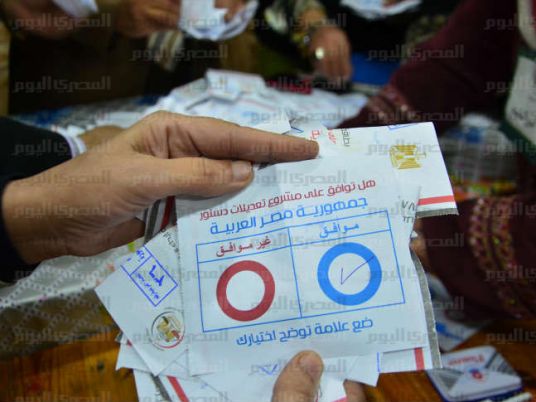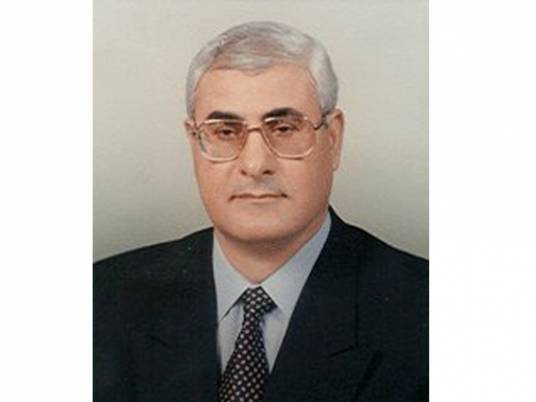The majority of Egyptians casting votes in Saturday’s referendum have backed the proposed constitutional amendments, with 77 percent voting in favor of changes, according to official results announced Sunday.
Judge Mohamed Atiya, who heads the army-appointed committee supervising the referendum, said in a press conference on Sunday that a total of 18.5 million voters out of an estimated 45 million who were eligible, or 41.2 percent, turned out for Egypt's first poll after the ouster of President Hosni Mubarak.
He added that 77.2 percent of voters (around 14.2 million) said yes, while 22.8 percent (around four million) said no.
Alexandria and Sharqiya governorates witnessed the biggest turnout in the nation's first fair elections in more than six decades.
The proposed constitutional amendments include: reducing presidential terms from six years to four years; limiting the presidency to only two terms; and drafting new criteria for presidential candidates.
Saturday’s vote was held amid polarized political views, with the Muslim Brotherhood, which was banned under Mubarak, backing the constitutional amendments along with the once-ruling National Democratic Party (NDP).
Other Islamic factions, such as the Salafists and al-Gama'a al-Islamiyya, backed a "yes" vote.
However, almost all other opposition forces, such as the liberal Wafd Party and leftist Tagammu Party, have called for the drafting of a new constitution.
Presidential candidates Mohamed ElBaradei and Amr Moussa rejected the amendments, saying that writing a new constitution is a priority.
The first test of Egypt's transition to democracy offered ominous hints of widening sectarian divisions, with Coptic Christians streaming to polling stations to register a "no" vote. Copts make up around 10 percent of Egypt's population of 85 million, and many among them called for a new constitution that would scrap Article 2, which identifies Islamic jurisprudence as the main source of legislation.
The result of the referendum paves the way for a parliamentary vote that may be conducted as early as September.
Secular opposition groups fear that the referendum's passage will allow the highly organized Muslim Brotherhood to dominate the political scene in the post-Mubarak era.
Atiya said that the Supreme Judicial Committee has reported minor cases of electoral irregularities, but that they do not affect the final results.
“All the irregularities will be investigated by the public prosecution office,” he added.



